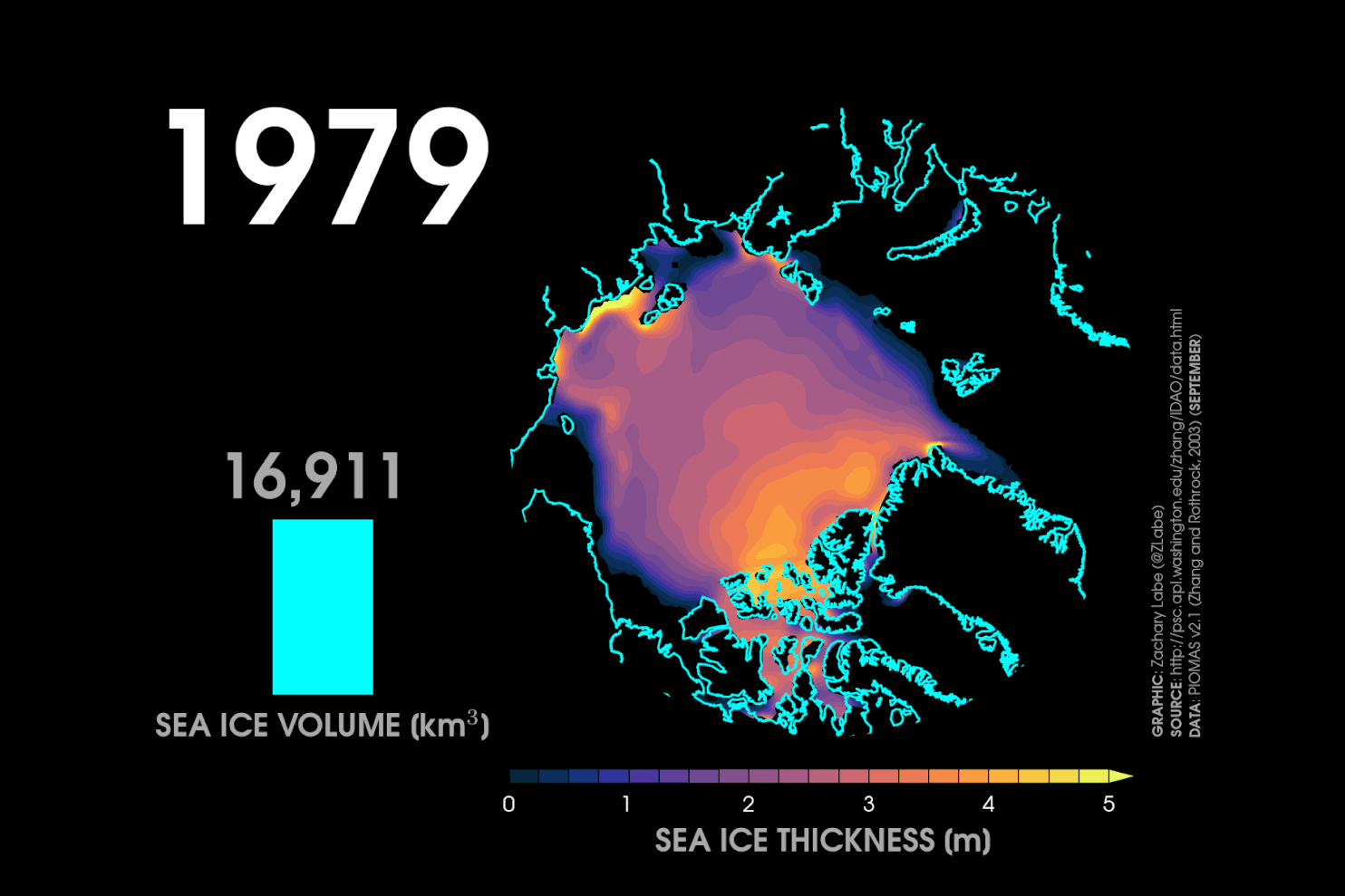 The National Oceanic and Atmospheric Administration has released its annual Arctic Report Card and it doesn't bode well for our planet. The latest studies indicate that the Arctic Ocean has undergone a startling change over the past 30 years that even climatologists were stunned to discover.
The National Oceanic and Atmospheric Administration has released its annual Arctic Report Card and it doesn't bode well for our planet. The latest studies indicate that the Arctic Ocean has undergone a startling change over the past 30 years that even climatologists were stunned to discover.According to the NOAA Report Card, the Arctic has lost 95% of its oldest and most stable ice in the past three decades, likely pushing it beyond the point of no return in terms of protecting it from climate change. The ancient ice that has been a part of the Arctic Ocean for hundreds of thousands of years is the structure that holds that region of the planet together, helping to keep it cold even in the summer months, then rebuilding the younger, thinner ice over the course of the winter. Unfortunately, without that core it is likely that most of the permanent Arctic ice will disappear in the future.
The loss of this older ice has come as a surprise even to the scientists and researchers who have been studying the impact of climate change on the Arctic. The fear is that without that solid base the Arctic could become ice free throughout the summer months, which would speed global warming along at a faster rate.
Researchers who make annual visits to the Arctic to survey the health of the ice there received a dramatic wake-up call this past March. While flying above the Arctic Ocean north of Greenland they spotted younger, thinner ice where normally the older, thicker frozen core would and should have been found. Those scientists acknowledge that the break up of the the region could have been caused by an unusually strong wind that crashed through the area this past winter, but even if that is the case it is a sign of how fragile the ice has become there.
Those same climatologists also say that for a long time we've been fixated on the amount of area that the ice covers, closely tracking how far south it goes and how much it retreats in the summer. Those studies have indicated that the Arctic ice is in clear decline. But what these latest reports indicate is that the volume of the ice has dramatically collapsed as well, meaning it isn't as thick as it once was.
Most of the ice that now remains in the Arctic is younger, thinner ice, which his much more brittle and is likely to melt during the summer. The thicker, older ice is now much rarer and isn't likely to be replaced in the near future either. As it melts, it will likely lead to rising sea levels, in addition to having a significant impact on global temperatures.
I know of at least one or two potential expeditions to the North Pole scheduled for early next year. Those journeys will be made all the more difficult by the lack of ice. The last successful full-distance expedition to the North Pole took place in 2014, and it seems increasingly likely that it will not happen again in our lifetime.

